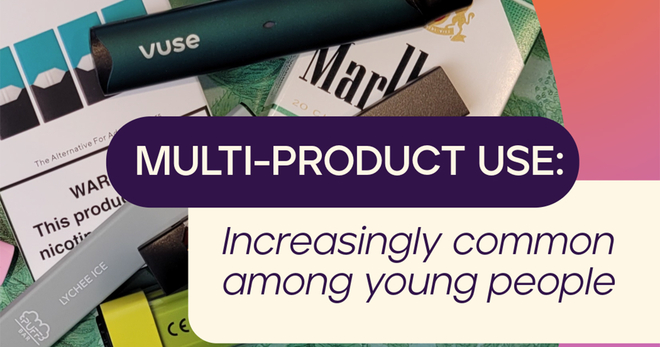5 takeaways from the congressional hearings on JUUL and the youth e-cigarette epidemic
Two days of congressional hearings examining JUUL’s role in the youth e-cigarette epidemic provided, with the company’s own testimony and documents, startling evidence of its use of Big Tobacco’s tactics to target young people.
Here are five key takeaways from the hearings, which included testimonies from JUUL Co-founder and Chief Product Officer James Monsees and Chief Administrative Officer Ashley Gould.
JUUL programs targeted youth as young as 8 years old with community and school programs.
Did JUUL programs target youth as young as 8 years old with community and school programs?
JUUL programs targeted children as young as those in third grade by funding summer camps, visiting schools and paying community and church groups to distribute their materials.
The hearings included testimonies from two high school students and their mothers about a class presentation from a JUUL representative, supposedly focusing on addiction and wellness, who said JUUL was "totally safe."
Members of Congress also presented evidence that JUUL misappropriated Stanford University’s educational materials about youth prevention programs to the point of receiving a cease-and-desist order from the school. JUUL claimed they had no prior knowledge of how Big Tobacco used similar programs despite evidence indicating that they carefully studied the topic.
At the same time as the JUUL executives admit to what they called marketing and education program “mistakes” and “missteps” in the U.S., they are implementing similar efforts in Canada, the United Kingdom and other parts of the world.

JUUL settled with a Big Tobacco company over trademark infringement.
Did JUUL settle with a Big Tobacco company over trademark infringement?
In the early days of the company, JUUL’s design so closely resembled Marlboro’s logo that it resulted in a trademark infringement settlement with Philip Morris USA. Consequentially, JUUL changed the look of its product.
Research shows that Marlboro tops the list of preferred cigarette brands among teenagers. Philip Morris parent company Altria also now owns a 35% stake in JUUL.
The company has not subjected its products to an independent, clinical investigation needed to substantiate claims that it helps smokers stop using cigarettes.
Did JUUL subject its products to an independent, clinical investigation to substantiate claims that it helps smokers stop using cigarettes?
JUUL continues to block and prevent Food and Drug Administration regulations, investing more than $1 million in lobbying efforts in the second quarter of 2019 alone. Meanwhile, JUUL has failed to subject its products to the level of independent, clinical investigation needed to substantiate any claims of effective cessation, nor has the company applied to the FDA to be approved as a product to help smokers quit.
"There's no clinical trial proving that JUUL devices help adults quit smoking cigarettes. None," said Sen. Dick Durbin during the hearing. "Despite all the marketing claims and all the paid testimonials, there is no credible medical evidence of JUUL’s most fundamental marketing claim."
The JUUL executive testimonies seemed to contain many contradictions as to whether JUUL is in the cessation business at all.
Did JUUL executive testimonies contain many contradictions as to whether JUUL is in the cessation business at all?
"The product we developed holds the promise to do what no previous technology has done — help adult smokers stop smoking combustible cigarettes on a widespread and consistent basis," Monsees said in his opening statement.
Ashley Gould stated during questioning under oath: "JUUL says that our product is intended to help smokers stop smoking combustible cigarettes."
Then, repeatedly, during his responses to questioning, Monsees said JUUL is not intended to be a cessation product, even stating, "I can't state more emphatically JUUL is specifically and on purpose not a cessation product."
JUUL executives had trouble remembering many things under oath, including the fact that they had an entire department dedicated to social media influencer marketing.
Did JUUL executives have trouble remembering things under oath, including the fact that they had an entire department dedicated to social media influencer marketing?
JUUL repeatedly stated that it does not have a celebrity or influencer program that would appeal to younger users. Yet, contracts with multiple agencies from the company’s own records show JUUL enacted a massive influencer engagement campaign to coincide their launch in 2015.
"Through repeated misrepresentations, misremembrances and obfuscation, JUUL showed itself to have studied the tone and tactics of the industry they claim to be trying to disrupt and to be taking them to a new level in what we can only characterize as Big Tobacco 2.0.," Truth Initiative® CEO and President Robin Koval said in a statement following the hearings. "The testimonies provided an abundance of new information and facts that we will share with young people through our truth® campaign to reveal how JUUL is targeting and recruiting a new generation and putting their future health at risk for profit."
E-cigarette use has surged among young people — many of whom never smoked cigarettes — growing 78% among high schoolers and 48% among middle schoolers in just one year from 2017 to 2018. JUUL, which accounts for three-quarters of the U.S. e-cigarette market, is driving the epidemic and has some of the highest nicotine content available among e-cigarettes. JUUL and other e-cigarettes also come in a variety of kid-friendly flavors that are attractive to young people.
More in emerging tobacco products
Want support quitting? Join EX Program
By clicking JOIN, you agree to the Terms, Text Message Terms and Privacy Policy.
Msg&Data rates may apply; msgs are automated.


